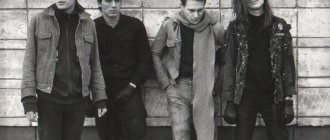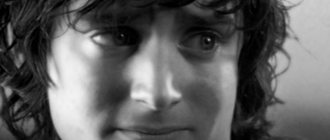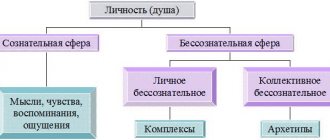The essence of the technique
The method consists of presenting a person with 88 questions to which he must answer briefly “yes” or “no” without thinking for a long time. It is important to give answers based on your current mood. As a result of the survey, after further processing of the data, the accentuation of the human personality is determined, which is selected from the following ten types classified by Leonhard Shmishek:
- The demonstrative appearance is characterized by the desire to constantly oust other individuals from the environment.
- Pedants, inert behavior with sufficient rigidity, unable, as a result of inhibited mental activity, to remove traumatic experiences from thinking.
- The stuck personality type is characterized by persistent preservation of the resulting effect in the psyche.
- Excitable individuals do not control emerging impulses and drives; they are characterized by high impulsiveness of behavior.
- Hyperthymic people are characterized by high spirits, which is accompanied by vigorous activity and constant optimism.
- Distic nature is characterized by the manifestation of a low mood, pessimistic thinking, highlighting unsightly life situations and the shadow sides of existence, and slow-wittedness.
- Anxious-fearful individuals are afraid of habitual actions, show timidity, and are unable to take action due to constant timidity.
- The cyclothymic type is characterized by a constant change from vigorous activity and optimism to pessimistic reasoning and inactivity.
- Affectively exalted individuals in all manifestations of life experience extreme delight or unrequited sadness; people of this type are constantly in these extremes.
- The emotive character in terms of mental manifestations is close to the previous type, but the peculiarity is that the mood is not so violent and is located in an average emotional background.
Two types of techniques
The maximum result value for each type of accentuation was selected as 24 points . A sign of a certain personality type is considered to be a score exceeding 12 points. Variants of the technique have been developed for adults and children:
The method for determining accentuation reveals:
- character type and personality;
- motivation of actions;
- temperament;
- relationships with other individuals;
- intellectual development;
The difference between the children's and adult questionnaires is that the first determines the individual's professional relationships, and the second examines the child's behavior in educational and play activities. Different wording of questions helps to identify the prevailing personality accentuations for both a child and an adult; the results are processed in the same way for the two options.
Conducting a survey
The survey is based on the theory of accentuated personalities , developed by Leonhard Schmishek. In accordance with it, all characteristic personality traits are divided into basic and additional. Basic personal qualities determine the core of character, development, adaptation in society, the integrity of the mental state, that is, they characterize a person’s character. If unfavorable external conditions arise, then the main features can become a destructive force for the individual personality and acquire a pathological direction.
Leonhard Šmishek considers a person with pronounced basic traits as an accentuated personality and the manifestation of emotional traits to be pathological if they do not go beyond standard manifestations. The psychologist believes that a character with pronounced accentuation has the potential for both positive and negative actions.
Instructions for determining personality accentuation
The person being tested is offered 88 statements, which are called questions. If the subject agrees with the statement, he answers “yes”, otherwise he gives a negative answer. You need to react intuitively and without much thought.
Processing of the received information is carried out by an initial count of responses that match the standard key, and a separate check for matching sincerity is carried out. The maximum sincerity indicator is determined on a scale and is 10 points. If the total score is not higher than 5, then the majority of answers are considered sincere. A range of values from 6 to 7 indicates that some of the answers are implausible. Increasing the indicators to 8–10 points negates the veracity of the answers, and the survey is considered unreliable.
The points on each scale are added up, and the sum is multiplied by the coefficient recommended in the key, with the maximum number of points scored not exceeding 24. The result after multiplication is determined in accordance with four developed levels of accentuation of a certain personality trait:
- low manifestation are considered values in the range from 0 to 6 points;
- average values of trait severity are between 7 and 12 points;
- increased manifestation of a characteristic trait - from 13 to 18 points;
- the expression of emotional traits gains an accentuation value in the range from 19 to 24 points.
Human character profile chart
The results obtained during the processing process serve as data for drawing up an analytical graph .
They begin to study the graph by considering the general shape, taking into account how the indicators are located relative to the upper (18 points) and lower limit (7 points). Among the numerous cases of placement, several standard forms are distinguished; sometimes all or the vast majority of points corresponding to the indicators are in the area of low values (from 0 to 6 points). In this case, data interpretation is carried out in two directions:
- The first direction, if a person is characterized from the point of view of demonstrating social norms of behavior, at his discretion, such individuals show reduced self-criticism, insincerity, and sometimes demonstrate pretentious traits. Such data is usually designated as unreliable, although some information can be gleaned from it.
- Other indicators are given by people with traits of passivity, inconspicuousness, and who do not crave high achievements. A person does not control his destiny, he does not have the opportunity to become a leader. Often individuals with this character are interested in mystical help or become hostage to religious beliefs. The personality cannot withstand troubles and difficulties and is not inclined to change.
If the indicators on the graph are within 19 points , then the accentuation of character traits is obvious and it is worth talking about a bright personality with a complex and multifaceted emotional manifestation. Raising the bar to 22 points indicates obvious accentuation, but such indicators indicate the emergence of communication problems.
Very often in practice there is a graph where the line has a jagged shape, alternating low and high values. Studying this nature of the curve requires special care, since the values can indicate the liveliness of nature with the manifestation of shortcomings and advantages, as well as determine a problematic personality in upbringing and behavior in society.
one high indicator stands out in the overall uniform flow of the curve , this indicates a clear manifestation of accentuation or the need to behave in accordance with the main features of this type of personality.
On the generally flat position of the curve, several sharp jumps in values stand out, sometimes reaching the zone of the highest indicators - which means that when characterizing this nature, one should talk about a combination of accentuations of various types.
Characterological test K. Leonhard - N. Szmishek
When selecting personnel for positions that require certain qualities (restraint, composure, the ability to get along with people, punctuality, the ability to complete a job started, resistance to stress), in some cases it is important to diagnose a person’s hidden accentuations. The K. Leonhard-N. Shmishek test allows you to identify and predict the manifestation of hidden accentuations in human behavior under the influence of certain factors.
Accentuation is the excessive manifestation of certain character traits or their combinations. Accentuation is not a pathology, it is an extreme degree of the norm, beyond which psychopathy begins - an irreversible character pathology leading to disruption of a person’s adaptation and interaction with the environment. Accentuations of character are most clearly manifested in adolescence, during the formation of character. It seems that under the influence of life experience, accentuations can be smoothed out and turn into “hidden accentuations.” The latter reveal themselves in their entirety in unfavorable circumstances - when experiencing traumatic events, in critical and stressful situations, and always when the “weaknesses” (vulnerable character traits) of a person with one or another type of accentuation are affected. In particularly difficult circumstances, they can lead to disruption of normal personality behavior and maladaptation: first, weak accentuation turns into strong, and then, if the impact of unfavorable factors persists, it can develop into a corresponding form of psychopathology. The presence of character accentuation in itself is not a disadvantage. According to some sources. One or another type of accentuation can be identified in half of the population of developed countries. In favorable conditions, “hidden accentuations” do not appear, and negative traits are compensated and a person can work quite successfully. In addition, each type of accentuation has positive qualities that a person can rely on when performing certain activities. The K. Leonhard-N. Shmishek test is a questionnaire containing 88 statements, which are grouped into 10 scales, each of which corresponds to one direction of accentuation:
- high vitality
- excitability
- depth of emotional reactions
- pedantry
- increased anxiety
- mood swings
- demonstrativeness
- imbalance
- fatigue
- strength and expression of emotions
The person taking this test must indicate whether they agree or disagree with each statement on the questionnaire.
The applicant is given the following instructions:
“You will be presented with statements regarding your character. If you agree with the statement, put a “+” sign next to its number; if you disagree, put a “-” sign. Don't think about the questions for too long. Remember, there are no right or wrong answers.” The responses received are processed using a special key. In accordance with it, the number of pluses for some issues and minuses for others is calculated, then the amount is multiplied by a certain number. Based on the results, the predominant type of character accentuation is determined. There can be ten types in total.
Dm - demonstrative type
A purposeful person who needs constant attention from others. They are distinguished by egocentrism, vanity, ambition, cunning, and lack of modesty. Prone to fantasizing. I can be very helpful if their interests require it. The positive side is courage in thinking. A person with this type of accentuation can be successful in professions that require constant interaction with the public (actor, TV presenter, lecturer).
P - pedantic type
He is distinguished by his thoroughness, composure, punctuality, high self-control, and the ability to accurately fulfill his duties. But at the same time, the inertia of mental processes inherent in representatives of this type leads to slowness, inhibition, overinsurance, avoidance of creative solutions, and low productivity of thought processes. People of this type do well in monotonous work that requires high precision, for example, in accounting.
Z - “stuck” type
A person with excessive retention and persistence of negative emotions. They are characterized by excessive touchiness, conflict, rancor, and suspicion. Ambitious, overly self-confident, prone to creating “extra-valuable” ideas.
B - excitable type
Characterized by increased excitability, irritability, and aggressiveness. As a rule, they are impulsive, unable to control their emotions and behavior in a state of anger. They may ignore moral standards, but often find themselves in creative professions.
G - hyperthymic type
Has increased mental activity, optimism, cheerful, active, proactive and enterprising. Strives for leadership in any circumstances, but prefers to be an informal leader. Often he is not able to complete the work he has begun, to be obligatory and responsible. Characterized by projectism, frivolity, instability of interests, and inability to comply with generally accepted standards of behavior.
Di - dysthymic type
He has a low mood, is prone to depression, is passive, but at the same time he is sensitive and has a strong position in life.
C - cyclothymic type
Sudden mood changes. Actions and actions from the outside seem unmotivated, behavior is difficult to predict. In certain moods, the level of performance decreases, even minor troubles can “knock you off track,” and failures are difficult to experience. Any criticism evokes thoughts of one’s own inferiority. They can do monotonous work.
T - anxious-fearful type
Characterized by increased timidity, timidity, and anxiety. Indecisive, avoids leadership, strives to occupy a subordinate position. May exhibit negative emotions in order to overcompensate for their anxiety. Often performs well in supporting positions.
Ae - affective-exalted type
A person who is predominantly in an excited and enthusiastic state. Very impressionable, reacts violently to events. He is sincere and deeply concerned about others, taking their problems to heart.
Em - emotive type
He has increased sensitivity, the ability to empathize, is impressionable and kind-hearted. Under extremely unfavorable conditions, he may become depressed. For each type of character accentuation, you can get from 0 to 24 points. An indicator exceeding 12 points is considered a sign of accentuation. An individual graph of the severity of types of accentuations can be constructed.
This technique allows you to identify the type of character accentuation to a fairly high degree - 86-89%. However, given that there may be errors in diagnosis using this test, the results obtained must be checked using other methods.
K. Leonhard - N. Smishek test
1. Are you often in a cheerful and carefree mood? 2. Are you sensitive to insults? 3. Does it ever happen that tears come to your eyes at the cinema, theater, or conversation? 4. Having done something, you doubt whether everything was done correctly and do not calm down until you are convinced once again that everything was done correctly? 5. As a child, were you as brave and desperate as your peers? 6. Do your mood often change from a state of boundless jubilation to disgust for life and yourself? 7. Are you usually the center of attention in society or company? 8. Does it ever happen that you are in such a grumpy state for no reason that it is better not to talk to you? 9. Are you a serious person? 10. Are you able to admire and admire something? 11. Are you entrepreneurial? 12. Do you quickly forget if someone offends you? 13. Are you kind-hearted? 14. When dropping a letter into the mailbox, do you check by running your hand along the gap that the letter has completely fallen into it? 15. Do you always strive to be considered among the best? 16. Have you ever been scared as a child during a thunderstorm or when meeting an unfamiliar dog (or maybe this feeling still happens in adulthood)? 17. Do you strive to maintain order in everything and everywhere? 18. Does your mood depend on external circumstances? 19. Do your friends like you? 20. Do you often have a feeling of strong inner restlessness? 21. Are you in a somewhat depressed mood? 22. Have you ever had a hysteria (nervous breakdown) at least once? 23. Is it difficult for you to sit in one place for a long time? 24. If you were treated unfairly, do you vigorously defend your interests? 25. Can you slaughter a chicken (sheep)? 26. Does it irritate you if a tablecloth/curtain hangs unevenly for a long time and you try to straighten it right away? 27. As a child, were you afraid to be left alone in the house? 28. Do you often have mood swings for no reason? 29. Do you always strive to be a strong worker in your profession? 30. Do you quickly become angry? 31. Can you be carefree and cheerful? 32. Does it ever happen that a feeling of complete happiness literally permeates you? 33. Do you think you would make a host of a comedy program? 34. Do you usually express your opinions to people quite frankly, directly and unambiguously? 35. Do you find it difficult to bear the sight of your blood? Does this make you feel uncomfortable? 36. Do you like work with high responsibility? 37. Are you inclined to speak out in defense of people who have been treated unfairly? 38. Are you scared (difficult) going down into a dark basement? 39. Do you prefer work where you have to act quickly, but the requirements for the quality of execution are low? 40. Are you a sociable person? 41. Did you willingly declare poems at school? 42. Did you run away from home as a child? 43. Does life seem difficult to you? 44. Has it ever happened that after a conflict (offense) you were so upset that it was impossible to go to work/school? 45. Would you say that when you fail, you lose your sense of humor? 46. Would you take the first steps towards reconciliation if someone offended you? 47. Do you really love animals? 48. Do you come back to make sure that you left the house (place of work) in such a condition that nothing will happen there? 49. Are you sometimes haunted by the thought that something terrible might happen to you (your loved ones)? 50. Do you find that your mood is very changeable? 51. Is it difficult for you to report (perform on stage) in front of a large number of people? 52. Can you hit the offender if he insulted you? 53. Do you have a great need to communicate with other people? 54. Are you one of those people who, under any circumstances, falls into deep despair? 55. Do you like work that requires organizational activity? 56. Do you persistently achieve your intended goal if you have to overcome a lot of obstacles on the way to it? 57. Can a tragic film move you so much that tears come to your eyes? 58. Do you often find it difficult to sleep because the problems of the past day or the future are spinning in your head? 59. At school, did you sometimes give your friends hints or let them copy? 60. Will it take a lot of willpower for you to walk through a cemetery alone at night? 61. Does it happen that when you go to bed in a good mood, you get up the next day in a depressed state that lasts for several hours? 62. Do you carefully ensure that every item in your house is in the same place? 63. Do you easily get used to new situations? 64. Do you have headaches? 65. Do you laugh often? 66. Can you be friendly even with those whom you clearly do not value, love or respect? 67. Are you an active person? 68. Are you very worried about injustice? 69. Do you love nature so much that you can call it your friend? 70. When leaving home, going to bed, do you check that the gas is turned off, the lights are turned off, and the doors are locked? 71. Are you very timid? 72. Does your mood change when you drink alcohol? 73. In your youth, did you willingly participate in amateur art groups? 74. Do you view life somewhat pessimistically without expecting joy? 75. Do you often want to travel? 76. Can your mood change so dramatically that your state of joy suddenly changes to gloomy and depressed? 77. Is it easy for you to cheer up your friends in a company? 78. How long have you been offended? 79. Do you experience the sorrows of other people for a long time? 80. As a schoolchild, did you often rewrite a page of your notebook if you accidentally made a mark on it? 81. Do you treat people with distrust and carelessness rather than with trust? 82. Do you often have scary dreams? 83. Does it happen that while standing at the window of a multi-story building, you are afraid that you might suddenly fall out of the window? 84. Are you usually cheerful in a cheerful company? 85. Are you able to distract yourself from difficult problems that need to be solved? 86. Do you become less inhibited and feel more free if you drink alcohol? 87. Are you short on words in conversations? 88. If you had to play on stage, would you be able to get into the role so much as to forget that it’s just a game?
Key to the Smišek-Leonhard questionnaire test
| Questionnaire scale | Answers "yes" | Answers "no" | Coefficient |
| Hyperthymia (G) | 1, 11, 23, 33, 45, 55, 67, 77 | 3 | |
| Distance (V) | 9, 21, 43, 74, 87 | 31, 53, 65 | 3 |
| Cyclothimity (C) | 6, 18, 28, 40, 50, 62, 72, 84 | 3 | |
| Excitability (B) | 8, 20, 30, 42, 52, 64, 75, 86 | 3 | |
| Jam (W) | 2, 15, 24, 34, 37, 56, 68, 78, 81 | 12, 46, 59 | 2 |
| Emotivity (Um) | 3, 13, 35, 47, 57, 69, 79 | 25 | 3 |
| Exaltation (Ek) | 10, 32, 54, 76 | 6 | |
| Anxiety (T) | 6, 27, 38, 49, 60, 71, 82 | 5 | 3 |
| Pedantry (P) | 4, 14, 17, 26, 36, 48, 58, 61, 70, 80, 83 | 39 | 2 |
| Demonstrativeness (De) | 7, 19, 22, 29, 41, 44, 63, 66, 73, 85, 88 | 51 | 2 |
Based on the processing results, a profile is drawn in the form of a graph, which is the basis for subsequent analysis.
General shape of the graph
The analysis of the results should begin based on the general shape of the graph, paying attention to how the obtained indicators are located relative to the lower and upper limits of the norm (7-18 points).
For example:
| Sum of points after multiplication | ||||||||||||||||||||||||||
| 1 | 2 | 3 | 4 | 5 | 6 | 7 | 8 | 9 | 10 | 11 | 12 | 13 | 14 | 15 | 16 | 17 | 18 | 19 | 20 | 21 | 22 | 23 | 24 | |||
| 1 | ||||||||||||||||||||||||||
| 2 | ||||||||||||||||||||||||||
| 3 | ||||||||||||||||||||||||||
| 4 | ||||||||||||||||||||||||||
| 5 | ||||||||||||||||||||||||||
| 6 | ||||||||||||||||||||||||||
| 7 | ||||||||||||||||||||||||||
| 8 | ||||||||||||||||||||||||||
| 9 | ||||||||||||||||||||||||||
| 10 | ||||||||||||||||||||||||||
| Sign of accentuation | Range of trends | Range of accentuated traits and character types | ||||||||||||||||||||||||
- Demonstrative type. Characterized by increased capacity for displacement.
- Pedantic type. Persons of this type are characterized by increased rigidity, inertia of mental processes, and inability to repress traumatic experiences.
- Stuck type. Characterized by excessive persistence of affect.
- Excitable type. Increased impulsiveness, weakening control over drives and impulses.
- Hyperthymic type. Increased mood level combined with optimism and high activity.
- Dysthymic type. Decreased mood, pessimism, fixation on the shadow sides of life, lethargy.
- Anxious and fearful. Tendency to fear, timidity and timidity.
- Cyclothymic type. Change of hyperthymic and dysthymic phases.
- Affectively exalted. Ease of transition from a state of delight to a state of sadness. Delight and sadness are the main conditions accompanying this type.
- Emotive type. Related to affective-exalted, but the manifestations are not so violent. Persons of this type are particularly impressionable and sensitive.
Among the numerous options for arranging indicators, the following are of greatest interest:
01 All or almost all points on the graph were in the zone of low values (0-6 points). In this case, there are two directions for interpreting the data. Firstly, the obtained indicators can characterize a person who, with all his might, wants to appear socially normative, “good,” as it seems to her. Typically, such people demonstrate reduced self-criticism, behave pretentiously, insincerely, and sometimes turn out to be demonstrative individuals. By observing them additionally, one can come to exactly this conclusion. In this case, data about the character traits of the subject are unreliable, although they provided certain information. Secondly, similar results can be given by a passive person who tries to be inconspicuous and does not strive for high achievements. Such a person is unlikely to become the master of his own destiny, a leader in a team, an entrepreneur or a fighter for ideas. He would rather plunge into mysticism and faith in God than to decisively change his destiny. Research suggests that such people cannot withstand difficult life circumstances.
02 Most of the values of the accentuated character traits were at or above 19 points. In all likelihood, we have before us a difficult person to communicate with, with many “sharp” angles, but, of course, he is a bright personality. If individual traits reach a score of 22 or higher, then there are obvious accentuations, which, as a rule, is a sign of communication problems.
03 The graphical curve has a distinct “jagged” profile - high and low values alternate. Such a graph occurs most often and requires special attention when interpreting, because behind individual indicators there can be hidden both a completely adequate, “living” person, with his own characterological advantages and disadvantages, and a person who is very problematic in communicative and educational terms.
04 Against the general “even” background of average and low indicators, one pronounced value stands out, or a value that falls into the zone above the average. In this case, we can talk about a pronounced type of accentuation, or a tendency to behave in accordance with the main characteristics of this type. A detailed description of each type is given in Section 4 of this manual.
05 Against the general “even” background of average and low indicators, several (2 or 3) pronounced values stand out, or values that fall into the zone above average. In this case, it is necessary to refer to the description of combinations of traits.
Specific groups of indicators
When analyzing individual combinations of traits, first of all, you should pay attention to two groups of indicators.
01 Accentuations based on energy-dynamic manifestations - hyperthymicity, cyclothymicity, demonstrativeness. If all indicators on the corresponding scales are below 7 points, then this is evidence of a lack of energy resources necessary for vigorous activity. If these indicators exceed the limits of 18 points, we are dealing with a person with powerful vital forces.
02 Accentuations based on emotions and feelings are stuck, excitability, emotiveness, anxiety, exaltation. If all or almost all indicators of these accentuations are below 7 points, this indicates a lack of expressive reactions to what is happening, which, as a rule, leads to low contact with others. If many of the indicated characteristics turned out to be above 18 points, then we are dealing with the exact opposite person, whose emotional and sensory life is so diverse that it becomes beyond the control of reason. Naturally, she has communication problems, since emotions and feelings can manifest themselves too vividly and inappropriately to situations.
Description of personality types in accordance with the development of Leonhard Schmishek
Demonstrative type of behavior
The sociability and courtesy of these individuals is obvious. Artistic and extraordinary personalities prefer everything non-standard and bright. They inspire trust and affection among others, are able to inspire ideas in themselves and others and influence their interlocutors.
Strives for leadership positions in the team, easily makes connections and contacts . In the most unsightly situations, he knows how to consider the advantages and use them for his own benefit. Despite the gentleness in communication, there is a tendency to initiate intrigue.
This type of personality is characterized by jealousy and envy, and often treats the success of others as their own failure. The personality can provoke conflict situations; some interlocutors are irritated by increased claims or self-confident statements. He strives to get the attention of others, and on this path all methods are good for him. People of this type are decisive, courageous, charming, bright individuals with well-developed intuition.
Pedantic personalities
Adherents of order in everything, follow the plan in their actions, and if they fail, they experience some irritation . Changes in life cause protest, as pedants have difficulty switching to new circumstances. They pay attention to external trifles and demand this from others; this trait is determined by the desire to control the situation, an attempt to subjugate objective circumstances.
In the business sphere, pedants are thorough, finish the work they start, and are scrupulous. In terms of health, such individuals behave reasonably and do not destroy it by drinking alcohol or other bad habits. Accuracy and strict adherence to standards are often combined with difficulty in making new decisions. Individuals have difficulty adapting to a team; they are indecisive, avoid bright actions, have inert thinking, and savor traumatic events for a long time.
Stuck Type of Human Nature
It harbors within itself for a long time and constantly experiences anger, resentment, fear , sometimes such feelings arise again after a long period of obvious attenuation. The most characteristic manifestations of feelings are envy, injustice, and jealousy. The type that gets stuck for a long time experiences the success of its activities vividly and for a long time.
A persistent and persistent nature, it is very difficult to change the type of activity, but in his field he often achieves outstanding results, strives to surpass other employees, and demands gratitude and real respect.
Stressful situations for the stuck type are uncertainty, violation of developed plans, dissatisfaction with oneself and lack of self-confidence, situations when there is a real leader who can take over his power.
Excitable type
This individual has increased reactivity of the nervous system , developed impulsiveness, hence rash actions and high excitability. The actions of others cause this type of personality a strong impression, such that thinking cannot quickly find the optimal way to react, and he responds with reactive actions.
The perception of someone else's opinion is difficult for excitable individuals, therefore, in order to achieve an adequate response, one has to resort to a long explanation. Often irritable and dissatisfied people respond sharply to criticism and show physical aggression, which they later regret.
Adaptation in society is difficult due to low contact , weakened self-control, disregard for ethical standards, despoticism and conflict. Their stress causes opposition, material and moral damage, the need to choose from many options, punishment for actions, and self-doubt.
Hyperthymic personality type
The mood of these people is constantly elevated, they are full of optimism, active, and cheerful . Kind, carefree and sympathetic, they have a lively mind and talkative nature. Often hypertims are interested in many things at the same time, but since they have unstable attention, they approach all interests superficially and often switch attention.
They have a negative attitude towards critical remarks, love freedom, and easily get used to difficulties. Failures that are difficult to overcome do not knock them out of their usual flow; duties and rules are considered optional. The mood and emotions of a person with this type of character are open and understandable to others. Irritability can be caused if his communication is limited.
Loneliness is an aggravating circumstance, so the type is indiscriminate in making acquaintances, easily finds new contacts and quickly adapts to society. Stress is caused by monotony of the surrounding space, monotonous work, excessive care and control, and lack of competitive spirit.
Dysthymic type of behavior
Due to decreased tone and inhibition of thinking, individuals rarely participate in sociable conversations. Shyness and indecisiveness reveal sublime feelings in nature in the complete absence of egoistic manifestations, and form ethical behavior. Individuals are characterized by a serious attitude to life, conscientiousness, responsibility, and a sense of justice.
Dysthymic natures are distinguished by independent judgments and have their own opinion on each issue. What prevents them from settling into their surroundings is pessimism, isolation, rudeness with friends and family, inertia, and the inability to participate in general joy. Stress is caused by the need to make new acquaintances, excessive moral and physical stress, noisy companies, responsibility for strangers, and rapid changes in situations.
Affective-lobal individuals
Realists by nature , such people do not consider themselves better than those around them, they calmly tolerate their shortcomings, with some temper, they quickly calm down and do not hold a grudge. If a period of sociability begins, then individuals easily make acquaintances and communicate, but as soon as the time of decline comes, a pessimistic mood makes you gloomily experience the smallest failures, avoid contacts and prefer loneliness.
Adaptation in society is hampered by excessive prudence, unstable self-esteem, resentment, pickiness towards others, a wide circle of friends, and the subjectivity of one’s own judgment . Stress causes the collapse of previously planned actions, the need for increased stress, separation from dear people, a change of environment, emotional reproach from people significant to him.
Affectively exalted nature
Characterized by speed of thinking and intensity of response to any events. The mood of a person changes at lightning speed from depression to happy euphoria, victories cause delight, failures unsettle . The motivation for actions is an altruistic mood; selfishness is extremely rare. Empathy for the troubles of friends, compassion for unfortunate animals drive exalted natures to despair.
Stress arises due to a tendency to self-examination, the need for responsibility, weakening of personal self-control, lack of necessary time, lack of communication, accusations of dishonesty, the presence of serious obstacles to the goal, public indications of shortcomings, monotonous work without change.
Emotive type
Nature is prone to long-term experiences from life impressions, mutual negative and positive experiences. A humane and sympathetic person, he subtly perceives surrounding events, and experiences the joy of full communication. Insight and developed intuitiveness allows you to unmistakably feel the change in the attitude of friends and loved ones; all feelings are reflected in facial expressions.
Difficulties with adaptation arise due to a tendency to long experiences, outbursts of anger or jealousy, increased suspiciousness, indecision in unfavorable situations, confusion, partiality and subjectivity of thinking. Stress causes violation of ethics by people around them, their indifference, callousness and rudeness, loss of friends or loved ones.
Neurotic anxious-fearful personality type
Behavior and thinking are characterized by constant anxiety, tension, and anticipation of troubles and sorrows. A person doubts the correctness of his own actions, thoughts and actions; when conflicts arise, he tries to avoid them or smooth them out by any actions. Suspiciousness for no reason is caused by internal experiences; since childhood, such people are afraid of the dark, cemeteries, dogs , thunderstorms, and communicating with new people.
The inability to stand up for their thoughts when the enemy is persistent sometimes leads such people into a state of timidity, humility, even humiliation, so there is a need to be harsh in order to defend their “I”.
Adaptation in a team is hampered by low self-esteem , the inability to defend one’s opinion and fight back, a feeling of constant helplessness, uncertainty, powerlessness, and vulnerability. Stress is dangerous in situations when an individual finds himself in an unfamiliar circle of people, there is a need for a public speech, an exam, a tournament, or a competition. The deterioration of morale is influenced by other people's ridicule, implausible accusations, loneliness and loss of loved ones, and talk of their imminent death.
Author's personality types
Karl Leonhard identified only 4 types of accentuated personalities. The classification is based on the principle of simultaneously highlighting a person’s strengths and weaknesses.
- Demonstrative type. These are eternal players and actors. All life for them is theater. They love to show off, be the center of attention, show off their lives, follow an imagined image, or play an assigned social role. Their actions and decisions are very reckless. Demonstrative people love risks and adventures and rush headlong into the pool. At the same time, they “sin” with self-pity.
- Pedantic type. These are responsible, conscientious people. Sometimes they are overly prim, bordering on tediousness. Their nervous processes are not flexible.
- Stuck type. Such people cling to some emotion, feeling, event for a long time. That is, they remember insults for a long time and try to take revenge, they are distrustful and jealous. They are distinguished by persistent affective states (impressionable). At the same time, they are persistent and ambitious.
- Excitable type. Such a person is characterized by impulsiveness, low self-control, and aggressiveness. He is often prone to addictions, in particular alcoholism. However, in moments of peace he is ready for constructive activities and conversations.
Hans Schmishek, a German conflictologist, identified 10 types of accentuations. Four of them coincide with Leonhard's classification. The remaining six types of accentuated personality, identified by Shmishek, were also mentioned in the works of Leonhard. But there they relate to temperament (this is a completely different topic), and not to accentuations. I described Leonhard’s accentuations above, now let’s look at Shmishek’s classification.
- Hyperthymic personality. This is a pronounced optimist. Such a person easily establishes contacts with people, quickly switches from one activity to another (not in the sense of the properties of attention, but in the sense of “not finishing what you start”), that is, an addicted type. Often has inflated self-esteem. Characterized by frivolity, lack of performance, low discipline and self-control. He can be aggressive, conflict-provoking (often provoking), and immoral.
- Dysthymic personality. This is the direct opposite of the individual described above, that is, a pessimist. Justice and friendship are important to him. However, he is closed and unsociable. Has low self-esteem. If she finds something she likes or someone she likes, she dives headlong into this relationship.
- Cycloid personality. Man of moods. It is characterized by instability. Either a hyperthymic person appears before you, or a dysthymic one. That is, it combines both types described above. Accordingly, it is unpredictable, self-esteem is unstable. He is conflicted, but it is impossible to predict his behavior in a situation of contradiction.
- Excitable personality. An unsociable, gloomy, boring type, often considered a boor. In relationships, he is characterized by a tendency towards tyranny, control, and power. Conflictful at work. When there is an emotional outburst, he is aggressive, dangerous, and active in disputes. When calm, he is neat and responsible.
- Stuck personality. Eternal parent and mentor. Likes to read morals, reserved. He sets high standards for himself and those around him, he is used to achieving the maximum. Has a heightened sense of global justice/injustice. At the same time, he is distrustful, vindictive, jealous, and vulnerable. He is often the instigator of conflicts, in which he always takes an active position. Differs in overestimated or, on the contrary, underestimated self-esteem.
- Pedantic personality. Executive and mandatory type. Loves formality and “clichés”. Non-conflicting. If such a situation happens, then be passive.
- Anxious personality. The type with low self-esteem, expecting the worst. Avoids contacts, lacks self-confidence. However, at the same time he is friendly, self-critical and efficient. Tries not to participate in conflicts. If such a situation arises, then he chooses to leave or make concessions (passive methods of solution).
- Emotive personality. Sentimental, kind, compassionate, dutiful, with an exaggerated sense of duty. Carefully selects the environment. He is friends with a select few, but is deeply imbued with these relationships. In a conflict, he happily makes concessions.
- Demonstrative personality. Strives to be a leader. He is attracted to power and fame. Can find an approach to every person. As a rule, he has pronounced charisma and is mannered. At the same time, he is a hypocritical and selfish person. Likes to gossip, brag, and create intrigue. He happily enters into conflicts and takes an active position there.
- Exalted personality. He is characterized by excessive optimism, I would call him an optimist squared (if not more). Amorous, hyper sociable and hyperactive. It is distinguished by fleeting, unpredictable changes (for example, in a fit of love, it can give an expensive gift from a master’s shoulder, which it will regret after the decline in “vital energy”). He easily becomes attached to people, but is always attentive to them.








